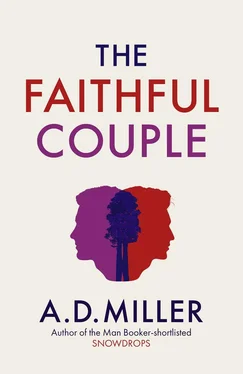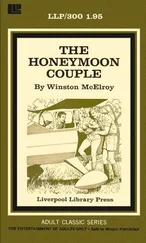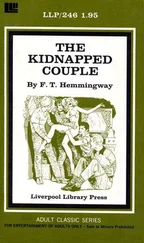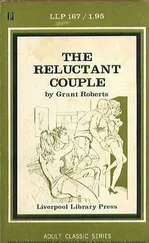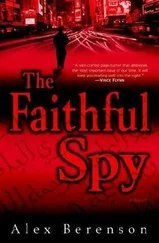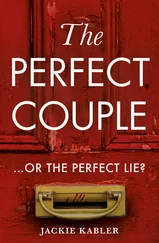Carousers huddled outside a pub. Two of them, men in suits but with their shirts hanging out, seemed to Neil to be squaring up. The taller one threw a punch, but stopped his fist short. They laughed, the smaller man laughing hardest, doubling up at the only simulated violence.
Neil rarely saw Farid, even now. He made infrequent appearances at their small but fancily addressed office in Hanover Square, and only brief ones at the parties they threw for investors. Still, he could be intimidatingly present when he chose to be. Neil once saw him eviscerate a straight-guy selling agent who had asked him to document his funds for a project in the City –
Who the fuck you think you are? Ten years I do business with you, you want see my credit card statement? I phone your boss, you fucking cunt, you never my letting agent no more
— and so on, Farid hamming up his broken English in a beautifully menacing cameo. His method was to borrow more than he needed for a purchase, top-skim the loan for his ‘personal overheads’, and use the change as bait for investors in his next, grander project. The next was always grander. The bankers didn’t seem to mind loaning the supernumerary sums: so long as the market kept rising, everyone would get their money back in the end, Farid said.
Neil thought of Farid as a kind of godfather, mostly in the fairy sense, only occasionally in the villainous one. Buying this car with Jess had been the first time he experienced his money as a real, transformative force; felt it to be his money, and that he had hurdled the boundary between struggle and success, a frontier that had seemed Himalayan until Farid opened a path across it.
He stopped at a red light. A child was loitering on the pavement in front of a supermarket, out too late. An old man was crossing the road, his spine so curled that his face was parallel with the road. The old man didn’t offer the standard wave of acknowledgement, nor even check that the oncoming car had stopped. He was shaking his head at the world.
The light flashed amber. Some imbecile behind Neil hooted.
Adam had been perfect after the stroke, Neil had to give him that. Like a brother, better than a brother, though even Dan had pulled himself together that week. Dan had come to the hospital, flirting with the nurses, depositing Sam to watch football on the television in another patient’s room. He was talking about taking a course (plumbing, he said, or roofing). He had some work on; he was straightening himself out.
‘Is he going to die?’ Sam asked Neil. ‘Granddad.’
‘I don’t know, Sammy. No.’
‘Dad got me a Scalextric,’ Sam said. ‘Did you know that? Second hand, but.’
Sitting with his father on the ward, without the carapace of work that had protected them in the shop, Neil had been ambushed by discordant feelings. Fear (that Brian was about to die). Some fear, at least. Horror (the tubes, the fluids, the caricature of mortality). Awkwardness (the tubes, the fluids). A consciousness of the falsity of the situation: Neil knew, and Brian must have known, that the closeness was a charade. Regret, that it was only a charade, and that it was too late for them to be otherwise, for him to have a better reason to be there, a better way of accounting for his presence to himself than this abstract yet lumpen duty.
Above all, boredom.
On the third day, when Brian was less groggy and tentatively mobile, Neil had tried, for the first and last time, to speak to him about his mother’s final weeks, which he remembered as a farce of whispering, increasingly absurd as she dwindled into frailness, followed by a series of over-choreographed hospital and hospice visits that, in his recollection, were always wrecked by vomiting or narcolepsy.
‘Dad,’ he said, ‘I wanted to ask you, why did you only tell us then? Right at the end.’
‘Your brother knew,’ Brian said, hoarse and unshaven. ‘Daniel knew. From the beginning. It was only you.’ He paused and closed his eyes, and Neil waited for the explanation. ‘Don’t forget,’ his father said instead, ‘to turn around the Open sign in the shop window.’
Perhaps there had been a kind of wisdom in that refusal to elaborate, Neil thought, slowing down to pass a cyclist. Water under the bridge.
A pizza delivery moped came the wrong way down a one-way street. Neil hooted. A group of men waited outside a minicab office, laughing at each other’s jokes. Adam was a liar, a decade’s worth of lies, but he had been kinder and more attentive than Jess, who had calibrated her response to what she knew of his and Brian’s relationship. She didn’t have much time for charades.
‘Anything I can do?’ Adam had said. ‘I’ll come over.’
‘You can bump off the guy in the bed opposite him. Stinks, the fucker. Screams all night, apparently.’
‘Roger that. Seriously, I hope things are… bearable.’
‘Thanks.’
‘I’ll come over.’
Adam called every day for a week. Neil suspected he was projecting his feelings for his own parents onto this emptier situation. He had come to admire Adam’s automatic love of his family without ever thinking he could emulate or quite understand it, as you might admire the practitioner of some recondite craft or art, a potter or a saxophonist.
That was only a few months ago. They had talked about Brian that week. They often talked about Sam and Harry. These days they didn’t talk much about Claire and Jess, out of a combination, Neil supposed, of loyalty and tact. Pretty soon they wouldn’t be talking about money, even though having it or not having it, how much you got and how you got it, were becoming the main questions. How much your friends got, and how.
A half-empty bus pulled away from its stop. A homeless man with an overstuffed shopping trolley sat on the narrow bench beneath the shelter, not waiting for anything. The man’s eyes met Neil’s before he could accelerate.
Envy wasn’t quite the right word for Adam’s response to his wealth. It would be fairer to describe it as a kind of cognitive dissonance, incomprehension that the chips should have fallen this way. Neil forgave him that much. He had felt something similar about his money, too, as if someone, some pinstriped overseer, might tap him on the shoulder at any moment, explaining that there had been a misunderstanding, he would have to give it back. The previous year he had invited Adam and Claire to join them on a balloon ride, high-altitude champagne over Kent for Jess’s birthday, and Adam had accepted. He rang back a couple of days later to say no, sorry, some blather about the babysitter, but Neil was certain the real reason had been the cost. He would happily have paid, but he knew Adam wouldn’t countenance that. Whisky and comfort and time were permitted offerings, recognised currency. But money, no. It was different from before, when Adam had loaned him the deposit for his bedsit, because the disparity was permanent, and in Neil’s favour.
Under a streetlight, two young men, one fat, one not, were eating chips out of a single paper cone. When he thought about their friendship now, Neil was put in mind of an image he must have seen on the television news a few years before they first met. It was a report about the Channel Tunnel, in which the two teams of diggers, one from England, one French, were breaking through to each other in the middle, beneath the sea. The clip showed two men groping for the other’s hand, clasping arms, clawing for each other through a wall of dirt.
Baker Street, Euston, the alluringly illuminated, somehow anarchic avenues of Regent’s Park, the pavement operettas of King’s Cross. Neil drove back into the up-themselves zone, the laptop and latte territory north of the City that, strange to say, was where he now lived. Sunday-night revelry: always somebody with something to celebrate or a sorrow to drown. Three young women shivered in their miniskirts outside a bar.
Читать дальше
